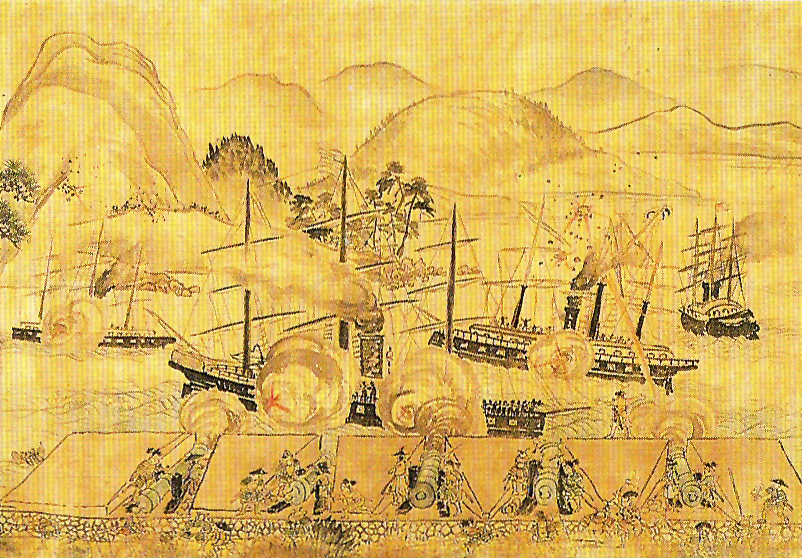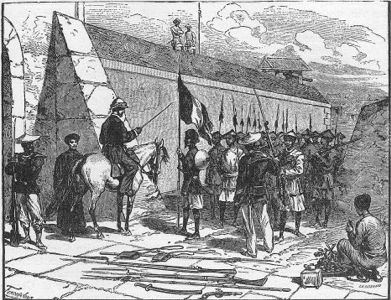Glen
Moderator
Was the initialism of the Bureau of Security intended to be BS?
No, but things happen. I imagine it's actually "BoS", like Department of Justice is "DoJ" and not "DJ".
Was the initialism of the Bureau of Security intended to be BS?
No, but things happen. I imagine it's actually "BoS", like Department of Justice is "DoJ" and not "DJ".
That is quite true. Conversely, the country is USA and not USoA, and the FDA is not the FaDA. I may be wrong, but I don't think alphabet soup was popular in the nineteenth century.
The butterflies at last reach China!
Any chance that we get to see China balkanized?

Glen
This could be messy, very messy. If the Russians are actually planning on a lasting occupation. See two main routes:
a) A long and bloody campaign of conquest, followed by prolonged fanatical resistance. Given the Russians are operating at the end of a very long and fragile supply line this could ultimately prove too expensive.
In which case after they withdraw what sort of state would Japan be in. Weakened a lot but also a lot of the old system broken down so possibly an even stronger reform element so that 'this can't happen again'.
) Worried at the growth of Russian influence someone else steps in and allies with a moderate Japanese faction.
Britain is the obvious option but depends on what's happening elsewhere.
[I was just going to say the recent failure to occupy Vietnam would count against it then realised that was another TL].
The other question would be what happens with the imperial family. Suspect that it could become a counter being used by any factor that can control it, including the Russians. Which would further undermine its status and relevance.
Steve

Perhaps in hindsight it seems obvious that a Southern Rebel would find common ground with another Southern Rebel, but in early 1857 General Stetson and his entire Devil's Army defected to the side of the Southern Chinese revolutionaries.
Big trouble in China though I'm surprised his entire army joined him in defecting. Surely they would have bee chosen for their loyalty to the Manchu regime?
Big trouble in China though I'm surprised his entire army joined him in defecting. Surely they would have bee chosen for their loyalty to the Manchu regime?
Probably a factor of becoming more loyal to Stetson because of the way he treated his men and how well he was doing during battles.
What Sovereign said, plus remember this is a brand new army TRAINED AND LED by foreigners, who in this case were chosen, trained and led by STETSON. So the officers were all loyal to Stetson more than the Qing. So long as Stetson can get the Southerners to keep them paid, they will stick. As for the rank and file in the army, sure there were some who deserted or were killed when their army defected, but they had come under the sway of a charismatic devil, and once they were in contact with Southern ideas, they were tending to get liberalized.
With the end of the Liberal War he left the British Army after being passed up for further promotions that he felt were due him.
Just a little N.B., Glen. Up to the mid-1850s, promotion in the British army officer ranks up to the rank of Colonel was almost exclusively by purchase only. It had to be agreed to, and had to come from the rank directly beneath (i.e. so you couldn't just buy your way into senior management in the space of a few months, though you could do it over the course of a decade) and there was scope to be breveted (i.e. given an "Acting" rank promotion, which gave no increase in pay and was temporary only) and it was possible to be promoted on merit, but being promoted on merit alone, even for a truely gifted officer, was the path to reaching the rank of Captain by your mid-30s at best, and reaching Major only if you were lucky, such was the volume of the officers willing and able to buy themselves to the promotions you were seeking despite being clearly unsuitable. IIRC, Richard Sharpe of the Cornwell novels only gets to the rank of Colonel because he himself acquires the all-important contacts in Horse Guards. It's a minor change, and now that I've written half an essay it now feels incredibly pettyo) but far more realistic to suggest that Stetson simply did not have the cash to buy himself the promotions.
Thankfully, this system of rank purchase did not extent to senior ranks, which is probably why the British army during the Napoleonic Wars and others was thankfully well-stocked with genuinely talented Generals, though every army has its share of total hopeless cases.
Incidentally, still loving the story, and I noticed the little cameo there. Honestly very happy to wait and indeed to see others get there first, but I'm still genuinely looking forward to finding out if any of my "relatives" have a part in this story